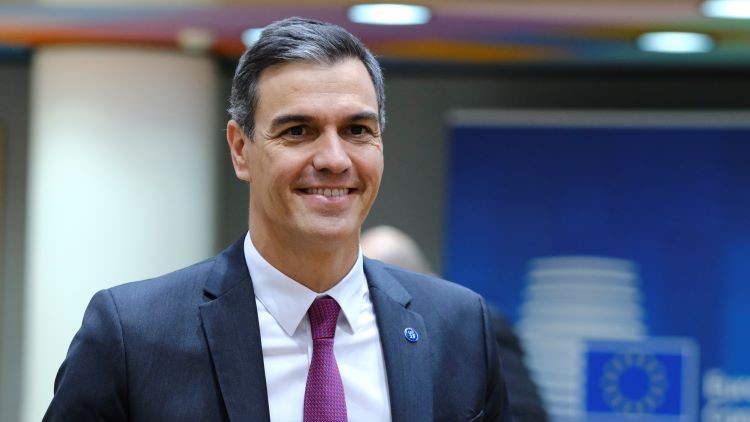Eduardo González
The Organization of Ibero-American States for Education, Science and Culture (OEI) concludes the year 2023 with important results in terms of digitalization of educational systems, strengthening of scientific production with an Ibero-American seal, consolidation of cultural citizenship or integration to through democracy and equality.
During the last twelve months, the OEI – with headquarters in Madrid – launched more than 300 international cooperation projects that benefited more than 21 million people in the 20 countries in which it has a physical presence, among which the training of more than five and a half million students and strengthening the teaching capacities of more than 270,000 teachers.
Likewise, as reported by the organization in a press release, this has been a year of great relevance for the positioning of the OEI in the ecosystem of international organizations by obtaining, in October, the status of observer organization of the United Nations and the re-election as representative of Latin America and the Caribbean in the High-Level Steering Committee for the Monitoring of Education of UNESCO, as well as with the signing in November of a cooperation agreement with Mercosur.
Digital transformation
During 2023, the OEI has firmly committed to contributing to the digital transformation in the region, with the creation, at the end of June, of the OEI Global Digital Strategy Directorate and with the launch of several projects, such as ‘Strengthening of STEAM skills’ in the Dominican Republic or ‘Social justice: key element for digital transformation in education’ in Mexico, organized together with the State of Durango and the Spanish Agency for International Development Cooperation (AECID) in favor of digital transformation and basic education in indigenous communities.
In terms of higher education, the Ibero-American Network for Training and Research on Digital Transformation in Higher Education was launched in Cuba. On the other hand, the pilot phase of the Kalos Virtual Ibero-America seal was concluded, with which the OEI and the Ibero-American Higher Education Accreditation Network (RIACES) certify the quality of virtual programs and to which universities have already joined of prestige in the region such as the UNAM of Mexico, the UNAD of Colombia or the UNED of Spain.
Regional integration and human rights
In addition, the OEI has promoted mechanisms to consolidate regional integration, “one of the great potentials of Ibero-America,” such as the launch of the Ibero-American Integration Chair, based in Buenos Aires, or the increase in efforts to promote citizenship Ibero-American cultural development in high-level settings, such as the VIII Ibero-American Cultural Congress, held in November in Lisbon, or the holding in May of the third edition of the International Conference of Portuguese and Spanish Languages (CILPE), in Asunción.
He also highlighted the holding of the first edition of the ‘Madrid in Ibero-America’ festival, which this year took place in the cities of Cali (Colombia), Arequipa (Peru), Santa Tecla (El Salvador) and Córdoba (Argentina), and the development of workshops on cultural routes and itineraries with which the OEI supports the promotion of the local economy through tourism in countries such as Ecuador and Paraguay, or the management of the Rio de Janeiro Art Museum (MAR), in Brazil, which is year it received more than 540,000 visitors.
The OEI also launched a Human Rights, Democracy and Equality Program in 2023 in which initiatives have been carried out to promote work in this area, such as the formation of an expert advisory commission in May or the holding in June in Santiago de Chile from the forum ‘Peer Democracy in the constitutional process of Chile’. Along these lines, in Colombia projects have been implemented aimed at non-stigmatization of the citizens who signed the peace agreement in that country and initiatives to promote the rights of indigenous peoples.
Ibero-American science
2023 has also been the year of the promotion of Ibero-American science, with the celebration in September of the IV Ibero-American Night of Researchers in which nearly a thousand scientists shared their research with the public in 16 countries of the region in more than 450 unprecedented activities. This year the event incorporated countries such as Bolivia or Cuba for the first time.
In Costa Rica, the program for strengthening scientific and technological systems (FORCYT), developed together with the European Union, was closed, and in Ecuador, for its part, the ‘We Are Women and We Do Science’ program was launched, with CIESPAL, to promote vocations in science and technology among girls and young people through testimonies from Ecuadorian researchers in various disciplines such as biology, electricity, biotechnology, nanoscience or chemistry.
“Next year the Organization of Ibero-American States will commemorate 75 years of existence and is already looking at the challenges that arise before the region as a whole, such as the implications of artificial intelligence in education or culture, stagnation of productivity or the need to improve the quality of the region’s educational systems, in a context still marked by uncertainty and the urgency of more and greater regional integration,” the organization concluded.







